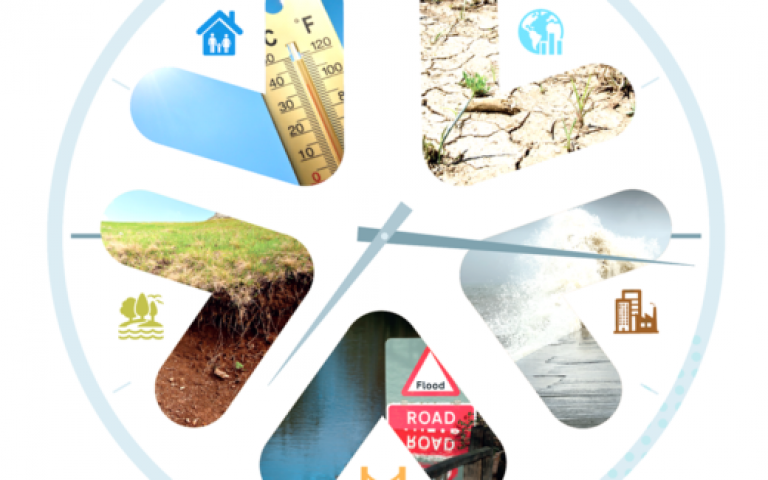UCL Academics contribute to new report on scientific assessment of UK climate change
12 July 2016

Climate change is happening now. Globally, 14 of the 15
hottest years on record have occurred since 2000. The impacts of climate
change are already being felt in the UK, and urgent action is required
to address climate-related risks, the CCC's Adaptation Sub-Committee
(ASC) says today.
The
ASC's new independent report to Government, 'UK Climate Change Risk
Assessment Evidence Report' sets out the most urgent risks and
opportunities arising for the UK from climate change.
The report
is the result of more than three years of work involving hundreds of
leading scientists and experts from the public and private sectors and
civil society. These include Professor Dan Osborn (UCL Earth Sciences)
who was the co-lead for People and the Built Environment with Dr Sari
Kovats (London School of Hygiene and Tropical Medicine). Professor Mike
Davies (The Bartlett, UCL) and Dr Sarah Bell (UCL Engineering) were also
main contributors to different sections of the report. The risk
assessment has been peer reviewed by UK and international specialists.
"Climate
change is expected to increase the frequency, severity and extent of
flooding in the UK. There are likely to be more periods of heavy
rainfall. We recognise that flooding has severe and long term impacts on
families and communities. Some communities are at risk from rising
sea-levels in the longer term. Climate change is also likely to bring
more heatwaves to the UK, yet there are no comprehensive policies in
place aimed at reducing the risk of overheating in new and existing
homes. The climate is changing. We will need to adapt the way we live to
future conditions. The sooner we start the better for society and the
economy," said Professor Osborn.
Changes to the UK climate are likely to include periods
of too much or too little water, increasing average and extreme
temperatures, and sea level rise. The report concludes that the most
urgent risks for the UK resulting from these changes are:
- Flooding and coastal change risks to communities, businesses and infrastructure.
- Risks to health, wellbeing and productivity from high temperatures.
- Risk of shortages in the public water supply, and water for agriculture, energy generation and industry, with impacts on freshwater ecology.
- Risks to natural capital, including terrestrial, coastal, marine and freshwater ecosystems, soils and biodiversity.
- Risks to domestic and international food production and trade.
- Risks of new and emerging pests and diseases, and invasive non-native species, affecting people, plants and animals.
The opportunities for the UK from climate change include:
- UK agriculture and forestry may be able to increase production with warmer weather and longer growing seasons, if constraints such as water availability and soil fertility are managed.
- There may be economic opportunities for UK businesses from an increase in global demand for adaptation-related goods and services, such as engineering and insurance.
The impact of the recent vote to leave the European Union
does not change the overall conclusions of the risk assessment. However,
some individual risks may change if EU-derived policies and legislation
are withdrawn and not replaced by equivalent or better UK measures. The
Adaptation Sub-Committee will assess the implications of the EU
referendum in its next statutory report to Parliament on the UK National
Adaptation Programme, due to be published in June 2017.
Lord
Krebs, Chairman of the Adaptation Sub-Committee of the Committee on
Climate Change, said: "The impacts of climate change are becoming ever
clearer, both in the United Kingdom and around the world. We must take
action now to prepare for the further, inevitable changes we can expect.
Our independent assessment today, supported by the work of hundreds of
scientists and other experts, identifies the most urgent climate change
risks and opportunities which need to be addressed. Delaying or failing
to take appropriate steps will increase the costs and risks for all UK
nations arising from the changing climate."
 Close
Close




